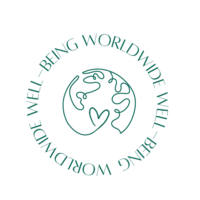
Compassion. We’re brilliant at offering it to others—but when it comes to ourselves? Not so much.
If you’ve ever felt stuck in a cycle of burnout, anxiety, or self-doubt, there’s a good chance you’ve been running low on compassion... for you.
I know this personally. During my own experience with anxiety and burnout, I didn’t realise just how harsh I was being with myself. There was very little love, very little kindness - and that inner environment was only fuelling how anxious I felt.
What Is Self-Compassion, Really?
Self-compassion isn’t feeling sorry for yourself. It’s not about pity or self-indulgence. It’s about recognising your own pain or struggle and responding the way you would to someone you love - with care, understanding, and respect.
For me, compassion is the ability to notice when we’re suffering and to meet that moment with gentleness rather than judgment.
Yet, when I ask people- especially those who are struggling - if they show themselves compassion, the answer is almost always no. Why? Because somewhere along the way, we’ve misunderstood what compassion really is.
Common Misconceptions About Compassion
People often confuse self-compassion with:
-
Being weak or feeling sorry for yourself
-
Indulging your emotions
-
Avoiding responsibility
-
Making excuses
But it’s none of those things.
In fact, when we practice true self-compassion, we actually:
-
Take responsibility without shame
-
Learn from mistakes without self-punishment
-
Grow faster because we feel safer to reflect, rather than hide from discomfort
Compassion Helps You, and Everyone Around You
When we’re more compassionate with ourselves, we don’t just feel better - we do better. We:
-
Make fewer reactive mistakes
-
Feel more confident and grounded
-
Give more freely to others (because we’re not running on empty)
You don’t run out of compassion. It’s not a resource that needs to be saved up for other people. In fact, the more you show it to yourself, the more sustainable your compassion for others becomes.
Where to Begin: Small Shifts Make a Big Difference
Self-compassion doesn’t mean you only ever speak positively or give yourself a free pass. It means you acknowledge the truth of what’s happening - and you meet it with kindness.
Let’s say you made a mistake. Instead of:
-
“I’m such an idiot. I always mess things up.”
Try:
-
“That was difficult, and I did my best in that moment. I’ve learned something important and I can carry that forward.”
This shift softens the inner noise and makes space for growth.
If it feels tricky, imagine how you’d respond to a loved one in the same situation - and say that to yourself.
Remember: You’re Doing the Best You Can
We’re all human. We’re doing the best we can with the thinking we have in any given moment. And the best part? That’s all we need to do.
You are enough. Right now. As you are.
Want to explore this deeper?
My free 3-part mini course, Break Free from Overthinking and Anxiety, is the perfect place to start. It’s full of insights that help you understand where your feelings come from and how to find more peace in your everyday life - without forcing positivity or “fixing” yourself.
💛 Get the Free Mini Course Here
Let’s start being kinder to the one person you’ll spend your whole life with: you.


Comments